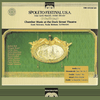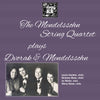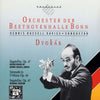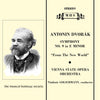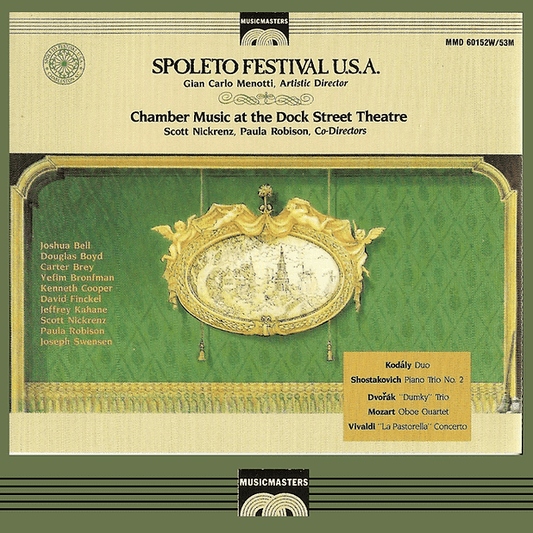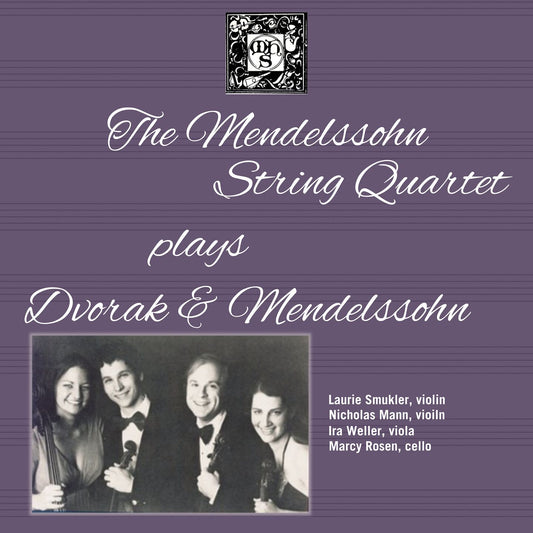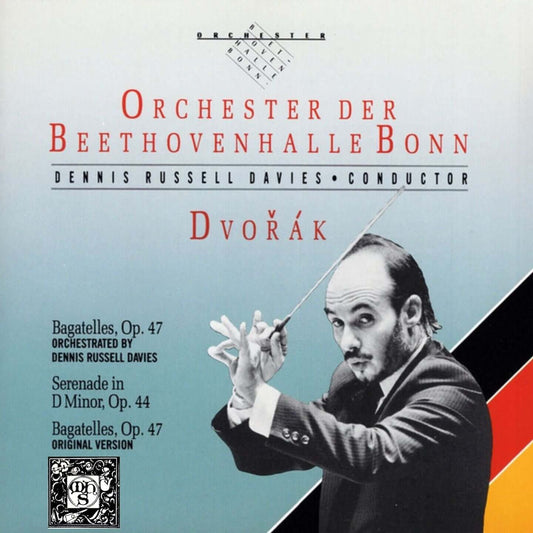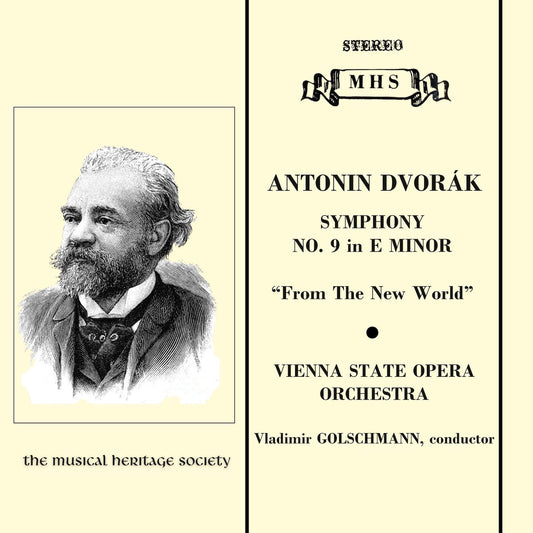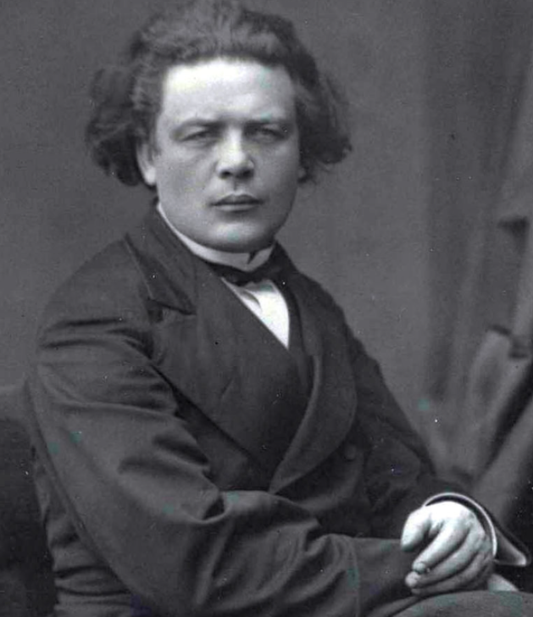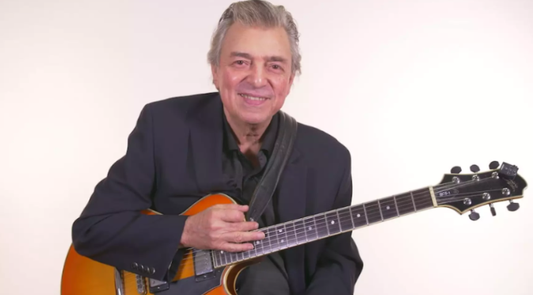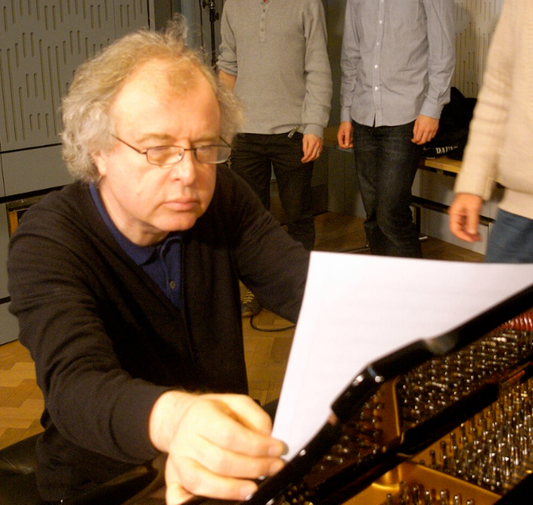Collection: ANTONIN DVORAK (1841-1904)
Antonín Leopold Dvořák (1841-1904) was a Czech composer who rose from humble beginnings to become one of the most beloved and internationally recognized figures of the Romantic era. He masterfully synthesized the melodic richness and rhythmic vitality of his native Bohemian folk music with the structures and traditions of Western classical music, creating a distinct and deeply expressive musical language.
Born in the village of Nelahozeves, near Prague, Dvořák was the eldest son of an innkeeper and butcher who also played the zither. Exposed to music early on in his father's inn and the local church, young Antonín showed considerable talent, learning the violin from the village schoolmaster. Although initially expected to follow his father's trade, his musical gifts were undeniable. At 12, he was sent to Zlonice for further schooling, where he studied German and deepened his musical knowledge, including organ and piano. His teacher eventually persuaded his parents to allow him a musical career, leading him to the Prague Organ School at age 16.
After graduating, Dvořák struggled for years to make a living and gain recognition as a composer. He earned money playing viola in Prague's Provisional Theatre Orchestra (sometimes under the baton of Bedřich Smetana, the pioneer of Czech nationalist music) and giving piano lessons. He composed prolifically during this time, exploring various genres, initially influenced by figures like Beethoven, Schubert, and Wagner.
A major turning point came in 1874 when Dvořák won the Austrian State Prize for composition.[3] Crucially, the jury included Johannes Brahms, who became a fervent supporter. Brahms recommended Dvořák to his own publisher, Simrock, who commissioned the Slavonic Dances (Op.[1] 46) in 1878. These vibrant, folk-infused piano duets (later orchestrated) were an immediate and immense international success, catapulting Dvořák to fame across Europe.
The success of the Slavonic Dances opened doors worldwide. Dvořák became particularly popular in England, making several trips there to conduct his works, including the Stabat Mater, Symphony No. 7 (commissioned by the London Philharmonic Society), and the cantata The Spectre's Bride. He also toured Russia and Germany and became a professor of composition at the Prague Conservatory in 1889.
In 1892, Dvořák accepted a prestigious and lucrative offer to become the director of the National Conservatory of Music in New York City. His mission, encouraged by the conservatory's founder Jeannette Thurber, was not only to teach but also to help foster a distinctly American style of classical music. During his three-year stay (1892-1895), Dvořák famously suggested that American composers should draw inspiration from Native American melodies and African-American spirituals, much as he had drawn from Czech folk sources. He met and encouraged African-American composers like Harry T. Burleigh, who introduced him to spirituals.
His American period proved incredibly fruitful, yielding some of his most famous works: the Symphony No. 9 in E minor, "From the New World" (premiered to great acclaim in 1893), the beloved Cello Concerto in B minor, and the String Quartet No. 12, "American" (written during a summer holiday with his family in the Czech community of Spillville, Iowa). While these works absorbed impressions of his American environment, they remained fundamentally rooted in Dvořák's Bohemian musical soul, enhanced by elements like pentatonic scales and syncopation, which he associated with American folk idioms.
Despite his success, Dvořák grew increasingly homesick and concerned about his salary payments. He returned to Bohemia in 1895, resuming his professorship at the Prague Conservatory, which he later directed (from 1901). In his final years, he focused more on composing opera, producing his most successful stage work, Rusalka (1900), and symphonic poems.
Dvořák's music is characterized by its abundant melodic invention, rhythmic drive often incorporating Czech dance forms like the furiant and the melancholic dumka, masterful and colorful orchestration, and a warm, lyrical expressiveness. While adept in large-scale forms like the symphony and concerto, some of his most enduring pieces are smaller works like the Slavonic Dances, Serenade for Strings, Humoresques for piano, and numerous chamber works (including the Piano Quintet No. 2 and the "Dumky" Trio).
Antonín Dvořák died in Prague in 1904, revered as a national hero and one of the most versatile and popular composers of his time. His legacy endures through his rich repertoire, which successfully bridged national identity with universal appeal, bringing Czech music to the forefront of the international stage.

